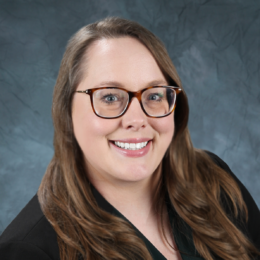Faculty Affairs & Learning Innovation
Roseman University College of Medicine

The Office of Faculty Affairs and Learning Innovation (OFALI) is the central faculty affairs and instructor development office at Roseman University College of Medicine (RUCOM). We offer training and support to faculty, department chairs, and university leadership towards fostering collaboration, empowering faculty, and driving innovation.

Join RUCOM
Explore open positions at Roseman University College of Medicine

Faculty Handbook
Access the RUCOM Faculty Handbook, RUHS Faculty Handbook, and the RUHS Employee Handbook.

College of Medicine Governance
Learn about governance at the Roseman University College of Medicine.


Faculty & Senior Leadership Annual Reviews
Find faculty & senior leadership annual review timeline, materials, and guides.

Faculty Policies & Forms
Faculty Annual Review
Faculty Annual Review Policy
Faculty CV Format Policy
Scholarly Activity Policy
Faculty Appointment
Faculty Appointment Policy
Faculty Appointment Procedures
Faculty Appointment Request Form
Faculty Professional Development
Professional Development & Travel Policy
Professional Development Request Form
Faculty Promotion & Contract
Faculty Promotion Policy
Promotion Procedure
Faculty Contract Renewal Policy


- Advancing a socially accountable and scholarly approach to teaching and learning in the health sciences
- Fostering horizontal and vertical integration of social determinants of health, humanities, ethics, and professionalism
- Facilitating the incorporation of educational technology in teaching and learning activities
- Working closely with Roseman faculty in the colleges of pharmacy, dentistry, nursing, and medicine to promote transdisciplinary teaching and research partnerships
- Leading transdisciplinary teaching and learning beyond the health sciences, including law, the arts, humanities, social sciences, data sciences, design, and architecture
- Advocating socially accountable qualitative and quantitative scientific methodologies
- Offering research coaching including encouragement of faculty to engage in the scholarship of teaching and learning
- Delivering programming to foster a culture of collegiality, professionalism, and collaboration among all faculty and staff
- Providing services and support to all faculty, including regular, clinical, and community faculty associates, to achieve individual career goals and enhance scholarship and teaching
- Guiding faculty through the promotions process
- Promoting interest groups to support faculty in academic medicine
- Supporting the Faculty Assembly
- Disseminating fair, comprehensive, and transparent policies
- Developing pedagogic and mentoring strategies that simultaneously uphold the principle of academic freedom and advance a culture of professionalism, collegiality and collaboration
- Collecting and analyzing data on faculty appointments, promotions, and scholarship





